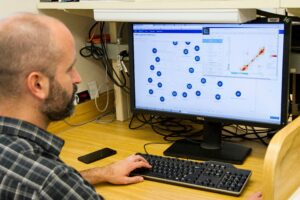
Scientists have made a groundbreaking discovery in understanding how a crucial type of immune cell, known as T follicular helper (Tfh) cells, adapts its behavior based on the type of infection. This advancement, published in Nature Immunology, could pave the way for the development of more effective vaccines and treatments for immune-related diseases.
In a major study led by the Walter and Eliza Hall Institute of Medical Research (WEHI), researchers have revealed how Tfh cells tailor their instructions to the immune system depending on the pathogen they encounter. This discovery sheds light on the molecular ‘instruction manual’ that guides antibody production and long-term immunity, offering new tools to improve vaccine design and develop targeted therapies for conditions such as cancer.
Understanding Tfh Cells and Their Role
Tfh cells are pivotal orchestrators of the immune response, essential for generating strong antibody responses. While these cells are activated in all vaccines, the way they adapt to different immune challenges had not been fully understood until now. The WEHI-led team discovered that Tfh cells possess a unique flexibility, allowing them to interpret environmental cues and deliver tailored instructions to B cells, which then produce the appropriate antibodies.
Central to this adaptability are signaling molecules known as cytokines, which help Tfh cells ‘read’ the immune environment. These cues act like a control panel, guiding the cells to deliver the right instructions depending on the type of infection or immune challenge.
Expert Insights and Implications
Associate Professor Joanna Groom, head of the WEHI Immunology division and lead author of the study, emphasized the significance of this research. “This is fundamental research that helps us understand the core mechanics of our immune system: how it responds to different threats and how we might guide it more precisely,” said Groom.
“Our immune system is fascinating in its ability to adapt and respond to such a diverse array of threats. The more we understand this flexibility, the more we can harness that power to improve human health.”
The study provides a comprehensive resource for researchers to track and manipulate Tfh cell responses, including molecular biomarkers that can be used to monitor immune activity in infections, vaccinations, and diseases such as autoimmunity and asthma.
Applications and Future Directions
These biomarkers offer a new way to understand how Tfh cells behave in different settings and could help identify when immune responses go off track. They also provide a foundation for developing tools to redirect Tfh cell behavior, potentially boosting vaccine effectiveness or correcting immune dysfunction.
Lennard Dalit, the study’s first author, highlighted the potential for designing better vaccines. “This work opens the door to designing better vaccines, especially for complex infections like parasites and bacteria, where current vaccines are less effective,” he said.
The adaptability of Tfh cells allows them to support antibody production in diverse settings. However, when these cells become dysregulated, they can contribute to diseases such as autoimmunity, asthma, and allergies by promoting the production of harmful antibodies. The new research lays the groundwork for developing targeted immunotherapies to treat conditions driven by abnormal antibody production.
Collaborative Efforts and Real-World Applications
A key strength of the study was its integration of multiple infection models established with Monash University, alongside insights from human tissue samples provided through a collaboration with the University of Melbourne. These tissues included tonsil, adenoid, and blood from multiple cohorts, allowing researchers to track Tfh cells across different tissue types and timepoints, including during COVID infection and recovery and following vaccination.
“These human cohorts helped us connect the dots between tissue and blood. That’s crucial for developing tools that can be used in diagnostics and future therapies,” said Assoc Prof Groom.
While the tools developed in this study are now available to researchers worldwide, the team has begun working to translate these insights into real-world applications. “Our next steps are to apply this knowledge in vaccine settings and explore how we can reset immune responses in autoimmune diseases,” said Assoc Prof Groom. “We’re also investigating how cytokine signals can act as a control panel to guide Tfh cells more precisely.”
The research not only provides a deeper understanding of the immune system’s adaptability but also opens new avenues for improving human health across a wide range of conditions. As scientists continue to explore the potential applications of these findings, the future of vaccine development and immune therapy looks promising.






